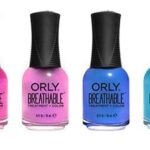
Source: Creative Services / iONEDigital
Yves Jeffcoat is a writer and digital creator based in Atlanta, Georgia. She writes about topics as varied as the importance of play for children, to the history of black face, to the creative genius of Black women artists like Carrie Mae Weems and Zanele Muholi. As a podcaster and producer, she creates space for compelling (and often underrepresented) storytelling through podcasts like This Day in History Class, Unpopular, and J.ill The Podcast. On Instagram, Jeffcoat goes by @notapologizing. It’s such a fitting handle (and definitely a whole mood!), and it describes perfectly how Jeffcoat moves through the world—not apologizing for who she is currently, who she is becoming, and all the mind and body journeys that bring her closer to being more free, more grounded, and more magical. We got to chat with Jeffcoat recently to discuss what being a free Black woman means to her, why self-care is radical for Black women, and the affirming words she wishes she could have told her younger self.
Let’s begin with a conversation on freedom. We all have different definitions of what it means to be free, to exist as free Black women. What does that mean to you, to be a free Black woman?
Honestly, I think freedom is a difficult thing for me to define, and I know we’re speaking about this from an individual standpoint, so that’s one thing. But I think it’s a concept that I’ve wrestled with because first, to be able to answer the question of what it means to be a free Black woman means that I have to answer the question of what it means to be free. I should just say that I don’t know. I have no idea what it means to be free. I don’t think that I can define what it means to be free with a capital F, but I think what I can say with confidence is that there are many freedoms and that I’ve experienced in specific moments in my lifetime. What it means to be a free black woman, I think is something that is always in a constant state of evolution for me– something that I’m always figuring out. I don’t know that it serves a purpose for me to try to put a box around what it looks like to be a free Black woman. I aspire to live in a way that does bring me more freedom, so I think it’s something that’s constantly influx.
That is an exceptional answer, honestly. We are constantly becoming, and thus constantly redefining the meanings of things and ideas. You do mention that there are moments when you feel more free. Can you talk a bit about what those moments look like, what the journey to become more free looks like for you?
I don’t know if I can describe those specific moments, but I do know that I feel freedom in my body when I am practicing yoga. That’s been a journey for me over time. The moments when I have felt unencumbered, and when I’ve felt liberated have happened when I’m silent— when I’m still… I feel free when I’m able to be with myself and my thoughts very intimately without any sort of judgment—just being present in the moment. It’s so easy for us as Black women to constantly be thinking about our burdens and about the things that are expected of us, and about the things that we are tied to and wrapped up in. I think remembering myself in my body in that moment and really grounding in my practice and rooting into myself, and just being able to think about movement and my body and being myself in those moments have been times when I have felt most free.
This kind of freedom ties directly to radical self-care. Being present, being in our bodies and shutting the rest of the world out, silencing the expectations and the ridicule that are forced upon us daily, is absolutely radical for Black women. How does working towards becoming more free connect to how you practice self-care?
The two are definitely intertwined. Being present, and even being in awe of the moment. Two guiding principles that I try to practice is remembering to stand in awe and in gratitude as I am being present in the world. I stand in awe of how the universe conspires to create these specific moments just for me, and I work to be grateful for each of those moments. I believe this is a very simple way to practice self-care and to practice freedom. I let go and surrender to the moment, and that’s something I try to return to when it comes to self-care. On the other hand, I also look at risk-taking as something that I return to. I think about the freedom to take risks as both self-care and form of practicing freedom. I get to choose what is an acceptable risk and what is an unacceptable risk. I get to address the fears that come up for me. Fear show up for a certain reason. There is something that I am trying to guard myself against when I feel fearful. For me, part of risk-taking is deciding to push through fear and do things anyway. It’s a form of radical self-care because in the process of pushing through those fears, I can remove limits and imagine possibilities. Even in risk-taking, though, I settle into gratitude. Because I realize that there are a lot of things available to me that were not available to my ancestors, and weren’t even available to my mother, or to people who are a part of my lineage that are still with me.
Speaking of risk-taking and being in gratitude of the things I’m able to do in this moment and the privileges I have, another way I practice radical self-care is reconnecting with the land—especially over the last few years. I am developing a new relationship with backpacking. I’m off-roading. I’m camping. This is a kind of risk-taking that is available to me because of the actions and because of the efforts of those that came before me. And so, these are not freedoms that I gained on my own. Connecting with the land in these ways is how I practice self-care and also how I honor my ancestors and honor the people who have made sacrifices on my behalf that are still among the living. My ancestors and my elders took risks that don’t necessarily look like mine in order for me to have new, and different, risk-taking opportunities. I never want to forget that or not stand in awe and gratitude of that.
Bringing up that our ancestors and elders took risks that look different from ours is so significant. So often when we think of being our ancestor’s wildest dreams, we think of achievements like graduating from college or achieving wealth. But maybe our ancestors took those difficult risks so that we can rest, or explore the land through hiking, or practice yoga to center ourselves, or following whatever our passions are. Maybe it’s our ancestors guiding us wake up, to have those aha moments where we realize that we deserve to be more free, that we deserve radical self-care. Do you recall an aha moment when you realized that you needed to be more intentional in your practice of radical self-care?
For me it was when I was diagnosed with multiple sclerosis in 2016. I think I was 23. I received this diagnosis at such a young age. It was a very specific moment of stress that triggered my body, and I realized, “Oh, stress is a thing that can actually turn into something physical, and it’s something that I shouldn’t ignore—that I shouldn’t downplay.” I realized that I could no longer condone the things that are triggers for stress in my life, because I would like to continue to exist. And I would like to continue to exist for many different reasons—for myself and for the people around me. It was around this time that I started to practice yoga. I had tried the practice before a couple of times, but it was after my MS diagnosis that I realized that it was a thing my mind and body needed. It was a very clear moment of self-preservation for me. There were many things working together in that moment. I happened to have access to a yoga studio. I had the privilege of being able to pay for the classes. It appeared for me. It was available to me. Fortunately, I was in a moment where I had the consciousness to realize that it was something that I should take advantage of. But, also, it was important to listen to all that was showing up. I was ready for the message in that moment. We might not always be ready for the message, and that is its own kind of work.
When I realized how much yoga helped me, I knew that I had to provide this help to other people. It had to be something that was a part of my service and a part of the thing that I am giving back to community, because it’s doing so much for me and it’s such a thing that can be catered to an individual person, where it’s like you can take what you need, and you can take it as you need and for what you need it for. Yoga can be helpful in many different ways to have as part of your toolbox, a part of the things that you can turn to when you’re living as a black woman in this world, and I wanted to be… I didn’t want to let go of the possibility of helping other people discover that kind of help. I didn’t want to let that opportunity pass me by.
You speak of being diagnosed with MS at such a young age and maneuvering through that diagnosis. When we are young, we think we’ll live forever in supreme health. We often don’t think about things like the importance of establishing self-care rituals. We don’t think of how stress affects the body. We don’t think about the miracle of each moment we live. What is a message that you would deliver to your younger self if you could? What did you wish you knew as you were growing towards Black womanhood?
That’s a good question. What would I say to myself? I’m trying to think of what the most important thing is. I think that I would tell myself to trust the process. I think there’s also a lot of other things that I would have told myself, but I think what the most productive part of it would be to tell myself is to trust the process. I learned a lot about caring for myself through the journey and through the process of living. Without those experiences, I don’t know if I would be in the place that I am today. It’s something that I still tell myself a lot, actually. It’s honestly, the best advice I could give my younger self.
Josie Pickens is an educator, a writer, a culture critic and a community organizer. Her work often focuses on race, gender, sex and sexuality. Follow her on Twitter and Instagram at @jonubian.


